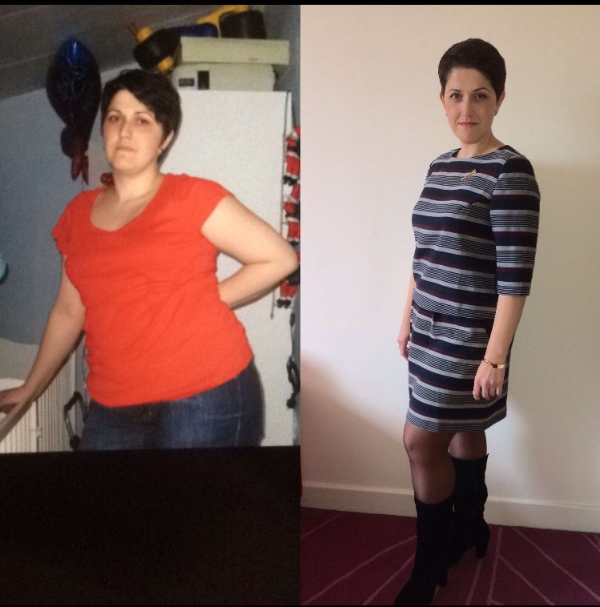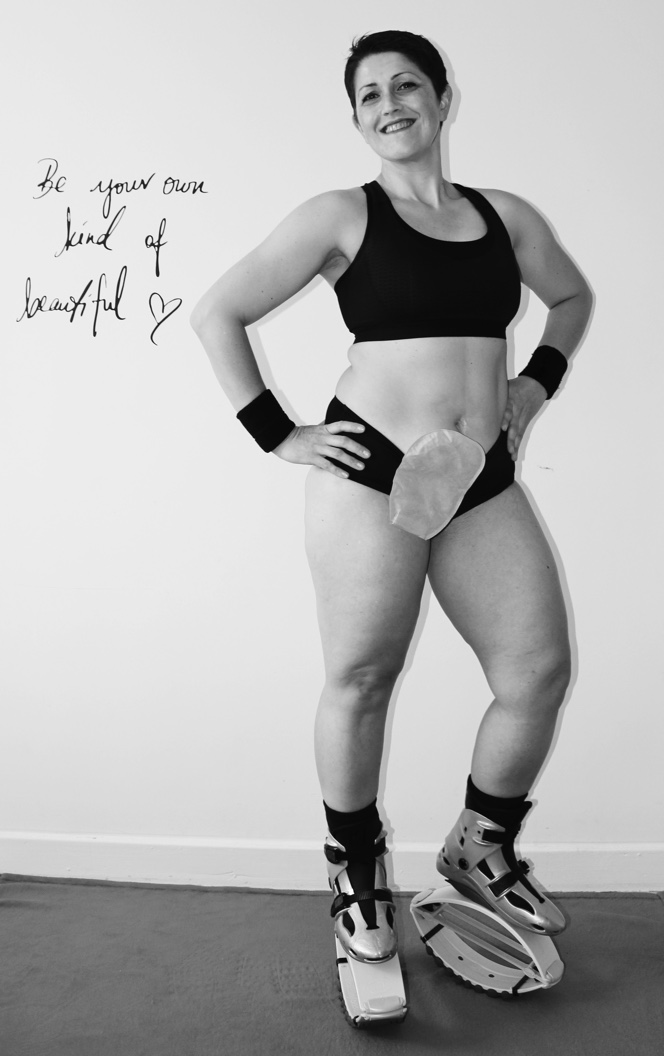Ileostomy and wellbeing: the importance of sports
Published 14 Feb 2020 • Updated 25 Feb 2020 • By Louise Bollecker
Letitia had an ileostomy 14 years ago. Here she talks about her health journey and the role sports play in her daily wellbeing.

Hello and thank you for agreeing to speak with us. Could you tell us a little about yourself?
My name is Letitia Gherhes, and I'm 43. I had an ileostomy done in 2006 (14 years ago). I'm married, have two kids, and have my own business.
What were your initial symptoms?
In 2000, I had a very strong flare-up of rheumatoid arthritis and three days later, the first flare-up in my digestive system with horrible abdominal pains, heavy bleeding and vomiting.
How were you diagnosed with Crohn's disease?
I was in hospital for 48 hours and took a load of tests. After all that they told me I had an incurable chronic disease, Crohn's disease. It was a life sentence, but there were treatments that would allow me to live with it. I took that all in and asked to be allowed to go home. I was prescribed cortisone, enemas and painkillers.
Did your doctors recommend an ileostomy straight away?
Yes, I was told that after a few years I may need surgery. It was an idea that stuck with me. I wasn't scared of it, but I was preparing myself for it because I kept having terrible flare-ups, even under treatment.
How was the operation performed and what happened afterwards?
I was on meds for SIX years (cortisone, ciclosporin, azathioprine, Pentasa) and constantly in and out of the hospital. I got my first injection of Remicade (infliximab) in January 2006, and my body couldn't handle it. After 4 months of hospitalisation, my doctors proposed surgery as a last resort. I was sick and tired of being in hospital and when the pouch was installed, I just wanted to go home. The stoma was a relief for me. I was in less pain, less stress about going to the loo and just a general improvement in my quality of life.
What part did your family and friends play in helping you to heal?
My husband and children were waiting for me when I came back. The first year was hard, I'd lost over 6 stone (imagine!) and I was in bad shape. My friends and family were so happy to have me back they referred to my pouch as my "saviour".
How are you today?
Today, it's been 14 years since my ileostomy and a total colectomy. I feel good, I take care of myself and I've gone off all meds. I'm very careful about my diet and my water intake which is a major factor in keeping me healthy. I do sports regularly to help avoid swelling in my joints.
How did you discover Kangoo Jumps? How did it help you and other patients?
I discovered Kangoo Jumps by chance, while on holiday abroad in 2013. I was overweight at the time (12 stone and I'm only 5'11"!) and I was looking for some sort of physical exercise I could do. The first time I put on a pair of KJ boots, I felt totally "off-balance" and like I'd "lost control". I had to relearn how to control my body, to do rhythmic movements. And it was fun dancing and sweating all over the place.

Kangoo Jumps boots were developed by physiotherapists to help patients physically recover, without risks, after an injury or surgery. They're designed to reduce impacts on the joints. They can be adjusted depending on your weight which allows you to start moving right away and with ease. My whole body was set into motion and that helped me develop my balance just by putting the boots on.
Does exercise help you to accept your body?
Definitely! Physical activity sharpens your mental and physical capacities. And it helps you get to know yourself better. Especially when, like in my case, you see changes very quickly in your body. With the KJ boots, when we first start out, we focus on balance, then on endurance and things get easier very quickly, and we see that we can do this. We can work on our bodies, we can have fun and lose weight, and feel better, and want to keep going. And that feeling of being able to be more than just an "invalid" is precious.
What do you do for a living now?
I'm a psycho-socio-aesthetician consultant and trainer. I went back to school after my operation and earned degrees in Cosmetology, Psycho-socio-aesthetics, Ethics, aesthetics and human dignity and Therapeutic Patient Education. I train carers on how to look after the well-being of their patients and I give talks about rebuilding one's self-image after a traumatic event.

What advice would you give to a patient?
The biggest thing is making peace with yourself, with your body, with your purpose in life. Learn how to put your thoughts in order and learn how to ask for help if you need it. Your body is your pillar and your life, so you need to make it stronger. Your body can learn or relearn good habits and adapt quickly to new things. Touch, self-care, and physical activity help to reconstruct the self. We're capable of pushing our limits much farther than we realise. Getting out of your comfort zone means facing your fears and your doubts and that's the only way we can discover who we truly are and what we can really do.
Any final words?
"Life will put stones in your path, only you can decide whether to make a bridge or a wall out of them…" (Coluche) Wellbeing is a choice!

 Facebook
Facebook Twitter
Twitter

